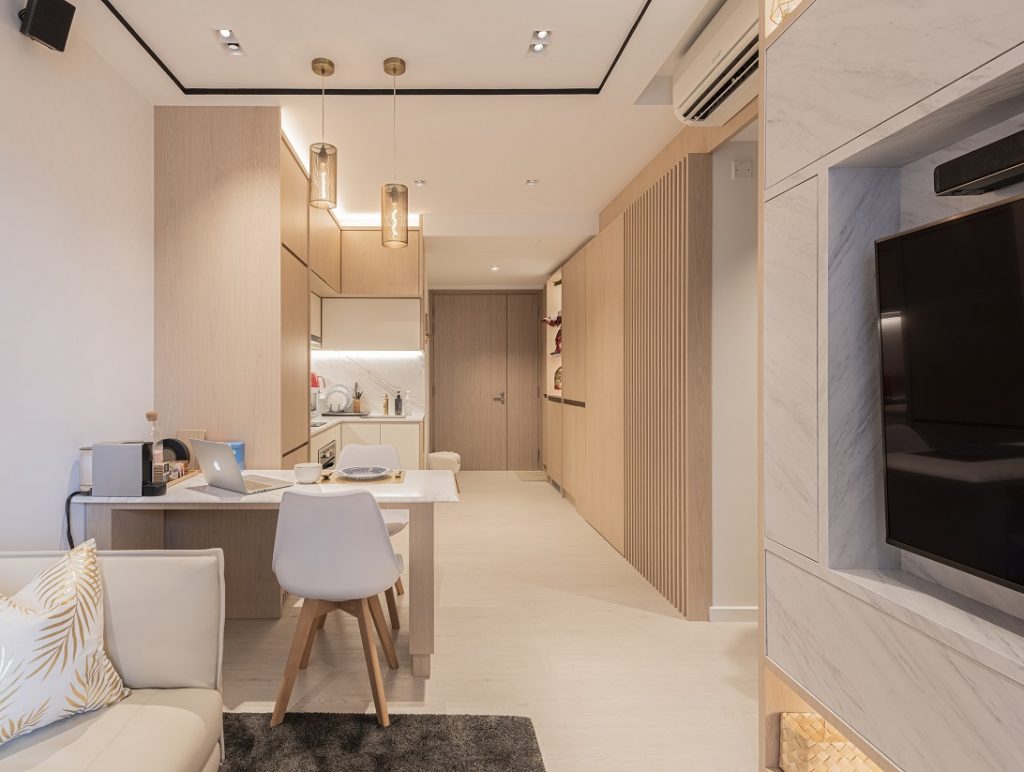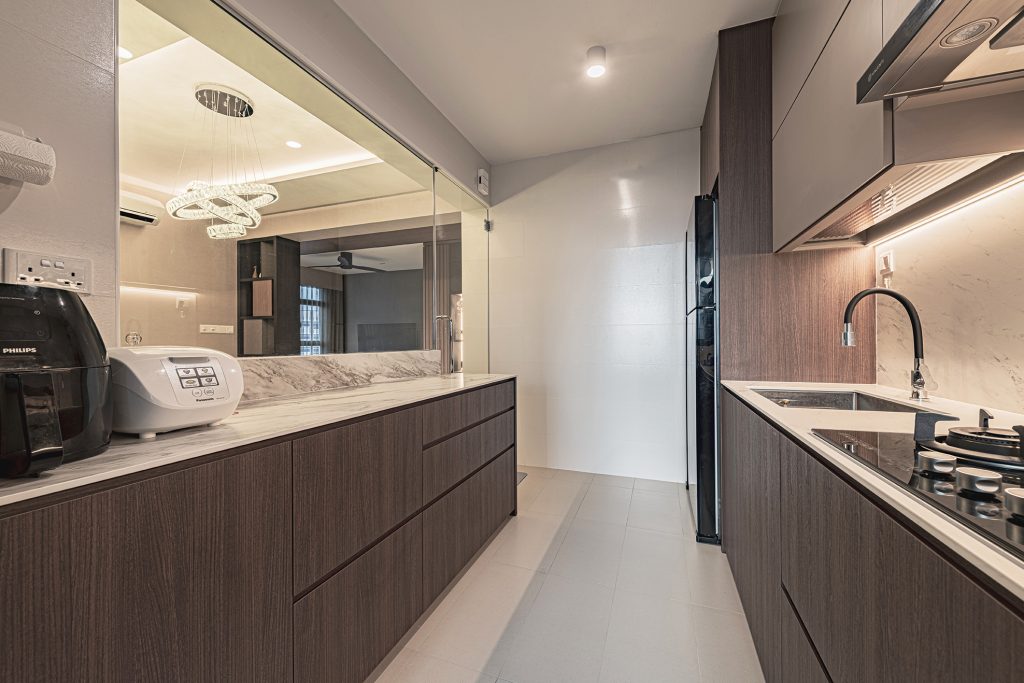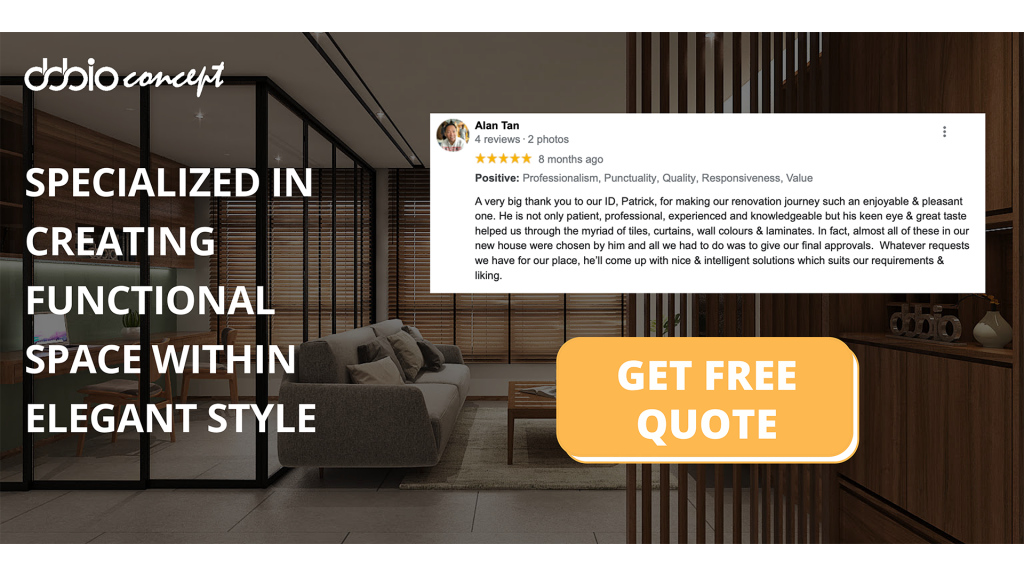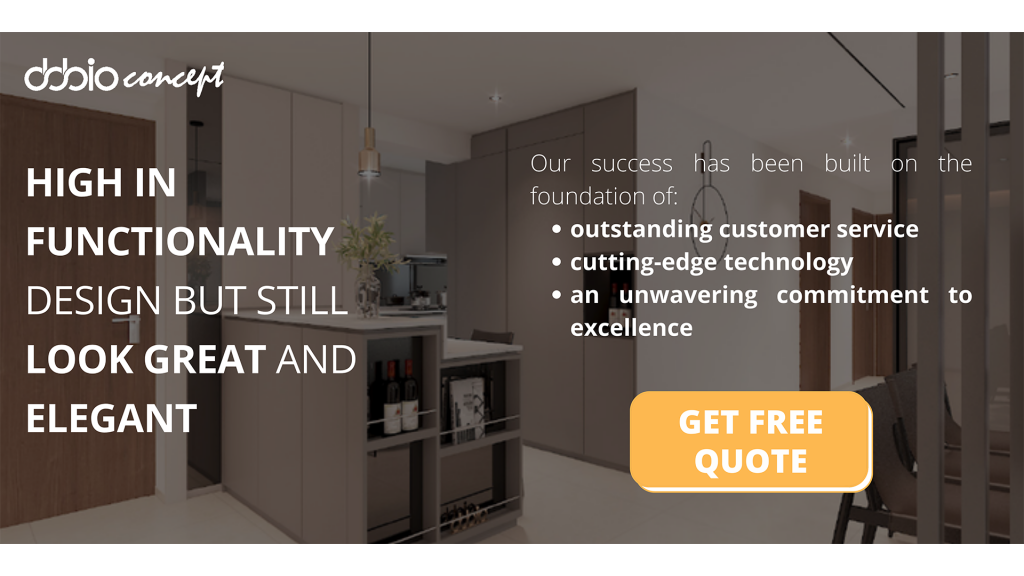Why is it so important to choose the right type of floor tiles for your kitchen? In many parts of the world, the kitchen is regarded as the heart of the home, so it’s essential to ensure you’re purchasing kitchen floor tiles that not only look great, but are also practical and durable. From appearance and durability to installation and maintenance, you need to consider all aspects of your new floor so that you can be sure you are getting the best quality product.

Marble flooring
For a variety of reasons, marble flooring is popular. Given its attractive design and long-lasting nature, it is at the top of the list when it comes to flooring selections. It’s the ideal blend of aesthetics and usefulness. This type of flooring is popular in various rooms of the home, including the kitchen. However, it usually has a high installation cost and is prone to yellowing, necessitating annual care.
Vinyl flooring
Vinyl flooring is divided into three categories: vinyl tile, vinyl sheet, and self-click vinyl flooring. Vinyl flooring is manufactured by compressing several materials together, giving it a scratch-resistant surface. It’s inexpensive, waterproof, and available in a variety of styles to complement the rest of your kitchen. This is now one of Singapore’s most popular flooring options.
Cement Screed flooring
Cement screed flooring is an excellent choice if you’re striving for a modern warehouse chic’ appearance influenced by the early 1900s American era. This flooring is low-maintenance and long-lasting, making it a prominent part of the industrial design style. It is, however, slick, so avoid it if you have elderly or youngsters at home.
Ceramic flooring
For bathrooms and kitchens, ceramic flooring is a popular choice. They are widely accessible, inexpensive, and simple to clean. They are available in a variety of sizes, textures, and designs to meet the demands of a diverse spectrum of clients. These tiles are also long-lasting, making them an excellent choice for kitchens. It’s worth noting that they’re not permeable. The main disadvantage is that dust can build in the lines, making cleaning difficult.
Porcelain flooring
Porcelain flooring is noted for its water resistance and durability. This is the toughest material currently available on the market if you are a heavy-duty user. Aside from the expensive installation cost, which is a one-time investment, this flooring offers stain resistance and a wide range of patterns, designs, and sizes.
Natural stone flooring
Natural stone flooring is quite similar to ceramic tiles in terms of characteristics, making it another excellent option. To begin with, it comes in a broad range of designs, shapes, and sizes. Natural stone is exceptionally long-lasting and easy to maintain. However, because it is a naturally occurring material, it is on the more expensive side of the spectrum.

Hardwood flooring
Hardwood floors, another environmentally friendly alternative, lend a natural beauty to your kitchen. Strip, plank, and parquet are the most common types of this type of flooring. It is a popular choice that also increases the value of your home. However, installation costs can be costly, and the flooring can scratch easily.
Things to Consider When Choosing Tile Flooring
Texture
Textured flooring is less slippery and hides debris, but they are more difficult to clean. If you’re concerned about sliding, place mats in high-risk places, such as in front of the sink.
Underlayment
Tile must be put on a smooth, flat, solid, and clean flooring. A cement tile backer board may be required beneath the tile, depending on the existing flooring.
Durability
The Porcelain Enamel Institute (PEI) has developed a technique for determining tile durability. For kitchen floors, use tile that is designated Class 3 (moderate traffic) or Class 4 (moderate to high traffic).
Resistant to water
Some tiles absorb water like a sponge, making them unsuitable for use in the kitchen. Stick to unglazed tiles with a maximum absorption rate of 0.5 percent and glazed tiles with a maximum rate of 3 percent for moisture-prone kitchens.
Designing your kitchen from scratch can be daunting. From picking out kitchen cabinets, and countertops, to designing your kitchen floor tiles, you may feel overwhelmed. ObbioConcept is an interior designer who can help you design and build the kitchen of your dreams with amazing designs! All you need to do is call us and we’ll take care of the rest!
If you look high in functionality but still look great and elegant.
ObbioConcept is a design studio that focuses on creating spaces that high in functionality but still look great and elegant. Our success has been built on the foundation of outstanding customer service, cutting-edge technology, and an unwavering commitment to excellence. What are you waiting for? contact us to get your dream house renovation here.


